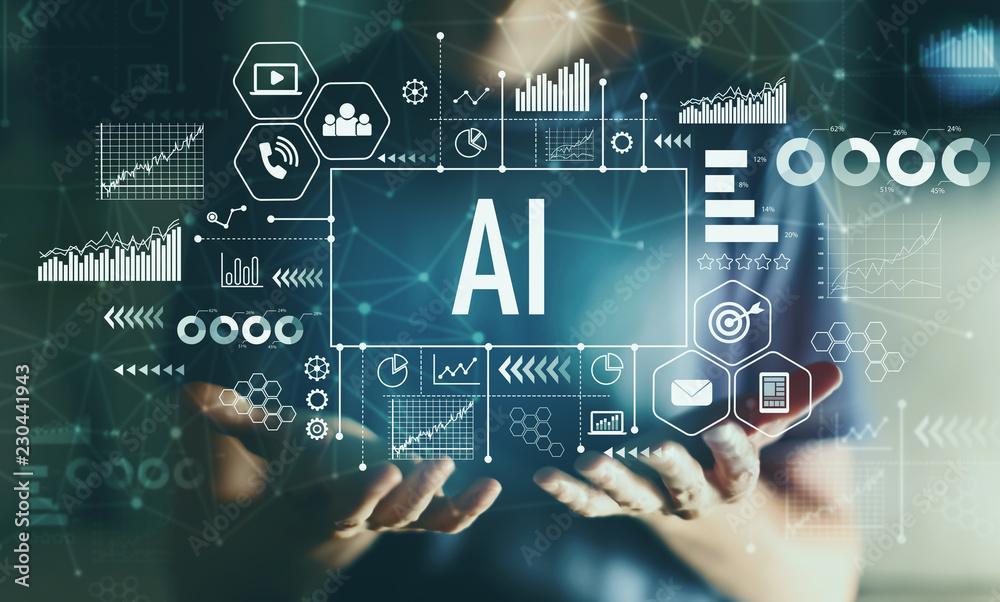 While I agree with John Spencer that we cannot predict how AI will change education, it has the potential to do so. AI will influence education, but whether it will be for good, both good and bad, or a bit of both, remains to be seen. As with any new technology, it is likely that the latter will be the case. As the debaters point out, there is already an argument for both sides. Many great points were made in the debate that AI could be used to adapt learning, create assignments and tests, and really be utilized to assist teachers in the classroom. However, as discussed in the debate there are concerns that the spread of false information could influence learning, AI could affect the development of critical thinking skills, and it may require teachers to spend additional time monitoring for academic dishonesty. At this point, I agree that AI is here to stay. We need to figure out how to embrace and use it responsibly. It will be extremely challenging to completely avoid AI, no matter how hard one tries. Change is inevitable in all aspects of life, we need to be able to adapt to changes, and I do think that the classroom is a great place for students to learn how to be adaptable. When employed in a responsible manner, AI has significant potential to alter the field of education.
While I agree with John Spencer that we cannot predict how AI will change education, it has the potential to do so. AI will influence education, but whether it will be for good, both good and bad, or a bit of both, remains to be seen. As with any new technology, it is likely that the latter will be the case. As the debaters point out, there is already an argument for both sides. Many great points were made in the debate that AI could be used to adapt learning, create assignments and tests, and really be utilized to assist teachers in the classroom. However, as discussed in the debate there are concerns that the spread of false information could influence learning, AI could affect the development of critical thinking skills, and it may require teachers to spend additional time monitoring for academic dishonesty. At this point, I agree that AI is here to stay. We need to figure out how to embrace and use it responsibly. It will be extremely challenging to completely avoid AI, no matter how hard one tries. Change is inevitable in all aspects of life, we need to be able to adapt to changes, and I do think that the classroom is a great place for students to learn how to be adaptable. When employed in a responsible manner, AI has significant potential to alter the field of education.
![]() The question he poses, “Will AI replace me?” is one I have heard frequently across different industries, even in my field of human resources. It is a common and relevant question that people often ask. It would be unusual if questions such as this were not asked. The unknowns surrounding AI may be scary, particularly given that this technology is changing rapidly. This may be especially true for individuals who did not grow up with this technology. My children adapt easily to technological changes, likely because they have grown up with technology and are comfortable using it. They seem to embrace the changes in a way that I find more challenging. John Spencer notes that although change is certain, we have no way of predicting what the changes will be and will most likely not be what we expect. What distinguishes humans from AI is our unique capacity to relate to others in ways that AI may never fully replicate. John Spencer discusses the importance of empowering children within their educational journeys, enabling them to develop fundamental skills for navigating the world effectively.
The question he poses, “Will AI replace me?” is one I have heard frequently across different industries, even in my field of human resources. It is a common and relevant question that people often ask. It would be unusual if questions such as this were not asked. The unknowns surrounding AI may be scary, particularly given that this technology is changing rapidly. This may be especially true for individuals who did not grow up with this technology. My children adapt easily to technological changes, likely because they have grown up with technology and are comfortable using it. They seem to embrace the changes in a way that I find more challenging. John Spencer notes that although change is certain, we have no way of predicting what the changes will be and will most likely not be what we expect. What distinguishes humans from AI is our unique capacity to relate to others in ways that AI may never fully replicate. John Spencer discusses the importance of empowering children within their educational journeys, enabling them to develop fundamental skills for navigating the world effectively.
 To enable AI to transform education, it is essential to carefully consider its potential challenges and disadvantages, as is the case with most emerging technologies. In the video, Bad science: AI used to target kids with disinformation on YouTube, they discuss, what I think is one of the biggest challenges with AI in its ability to create and spread misinformation. The need for stronger regulations on platforms like YouTube, Facebook and Instagram is very evident from this video. This raises significant ethical concerns when YouTube and Google are benefiting financially from creators that are creating and sharing false information. At the very least, disclosures should be required at the beginning of such videos to inform viewers if the content contains unverified or inaccurate information. I hope that over time, and as the government regulatory bodies adapt to advancements in technology, effective measures will be implemented to address and mitigate the spread of misinformation.
To enable AI to transform education, it is essential to carefully consider its potential challenges and disadvantages, as is the case with most emerging technologies. In the video, Bad science: AI used to target kids with disinformation on YouTube, they discuss, what I think is one of the biggest challenges with AI in its ability to create and spread misinformation. The need for stronger regulations on platforms like YouTube, Facebook and Instagram is very evident from this video. This raises significant ethical concerns when YouTube and Google are benefiting financially from creators that are creating and sharing false information. At the very least, disclosures should be required at the beginning of such videos to inform viewers if the content contains unverified or inaccurate information. I hope that over time, and as the government regulatory bodies adapt to advancements in technology, effective measures will be implemented to address and mitigate the spread of misinformation.
However, I do think it is necessary to ensure that measures are effective and researched and not just banning technology. I wonder if banning AI tools such as ChatGPT in schools may be the result of not knowing any alternative approaches to addressing the use of AI. The article in The Guardian mentions that critical thinking and problem-solving skills are hindered with the use of AI, yet they allow access when they are teaching technology-related education. This approach seems counterproductive. As discussed in this article, designing assignments such as having students produce videos may be an effective strategy to verify understanding instead of banning technology like AI.
 AI holds significant potential to change education, provided that careful attention is given to equity, inclusion, privacy, and the ethical integration of AI technologies within the classroom setting. The integration of AI offers vast opportunities, particularly in expanding access to education. AI has the ability create personalized learning for individuals, provide training and information to educators that allow them to be successful teachers, as well as create educational content and tools for assessments. AI can support these activities in multiple languages, making learning more available to a wider audience.
AI holds significant potential to change education, provided that careful attention is given to equity, inclusion, privacy, and the ethical integration of AI technologies within the classroom setting. The integration of AI offers vast opportunities, particularly in expanding access to education. AI has the ability create personalized learning for individuals, provide training and information to educators that allow them to be successful teachers, as well as create educational content and tools for assessments. AI can support these activities in multiple languages, making learning more available to a wider audience.
AI is transforming both educational practices within classrooms and the ways individuals engage in their professional roles. AI offers significant opportunities to enhance my work, especially in areas I am still learning about, but I recognize the potential to benefit employee learning and development. However, as demonstrated by the Air Canada case where their chatbot provided incorrect information to customers, it is important to implement AI carefully and with a comprehensive understanding of both its advantages and potential limitations. In conclusion, to respond to John Spencer’s question regarding whether AI will replace him, Shawn Kanungo states, “this isn’t about job elimination; it’s about capability expansion.”
Jenna, I appreciate reading your post because you have a different perspective from a classroom teacher. The question of whether AI will replace me must be a scary one for some professions. Your background in HR made me think about the unfortunate biases that can exist in AI. I’m sure someone has crafted an AI that sifts through job applications and eliminates some automatically, but what if, like the Air Canada example, the AI makes a mistake? I think there is a need for government oversight with AI, and just allowing capitalist corporations to make decisions isn’t always what’s best for the public, especially the most vulnerable, like children. AI is here, there and everywhere. We need to start teaching the students to understand and use it responsibly.
Hi Dustin,
I believe there is AI technology that screens job applications, but I am not entirely sure. In my workplace, we still have human eyes on all applications. I don’t think I could simply use AI to screen them. However, humans make mistakes, and resumes can only provide so much information. I still feel a bit nervous about what the future holds with AI, but I definitely agree that there needs to be regulation to ensure we protect people, especially children.
Jenna
Hi Jenna,
Thanks for your well-rounded and insightful blog post. I like how you included perspectives from both the educational and corporate worlds, especially your point about how HR is facing the same existential questions as educators. We often get wrapped up in speaking only in educational contexts and forget about other realms. It was a perspective I hadn’t thought of before. Your reference to Shawn Kanungo’s idea of capability expansion rather than job elimination stuck with me because a large fear of mine with AI is that the respect for educators will dwindle if people see that we are using it to assist or do some of our tasks. It also helps your stance that we shouldn’t ban AI out of fear, but learn how to use it practically. Your concern of misinformation is valid as well because this was something we mentioned in our debate, but we didn’t spend a lot of time on it, and it is very real. I suppose the only solution is to teach students how to recognize false information. That leaves me wondering, how can we design activities in our classrooms that encourage students to simultaneously trust AI and also question it? How do we ensure these activities are productive and don’t just run in circles?
Hi Jessalyn,
You raise some great questions. Regardless of whether children encounter AI, online articles, or social media, it is essential that they are taught to think critically about the information they access. Your point regarding the potential loss of respect for educators who use AI as a tool is interesting and not something I had considered. However, I believe that AI cannot fully replace humans and people know how valuable educators are. Classroom debates, such as those held in this class, could be very beneficial for students to develop critical thinking skills and encouraging meaningful discussions. I think the main goal of these activities is to support thoughtful conversation on topics like the impact of AI or debates about cell phone bans, rather than finding definitive answers.
Jenna
Hi Jenna,
Your reflections on the fear and uncertainty many of us feel toward AI really resonated with me. I love how you asked, “What does it mean to be irreplaceably human in education?” That question has been echoing in my mind ever since I read it.
In my own blog post, I explored a similar tension: wanting to embrace the potential of AI without losing the heart of teaching. I shared how being transparent with students, talking about the how and why behind AI tools, has been key to helping them become not only tech-savvy but also critically reflective. I’ve found that when we invite students into the conversation, rather than hide from it, they develop deeper ownership over their learning.
I also completely agree with your point that the interpersonal, empathetic moments we share with students can’t be replicated by any algorithm. There’s something profoundly human about that connection, and it’s what reminds me why teaching matters so much, even in an age of rapidly advancing technology.
Thanks for sharing! 🙂